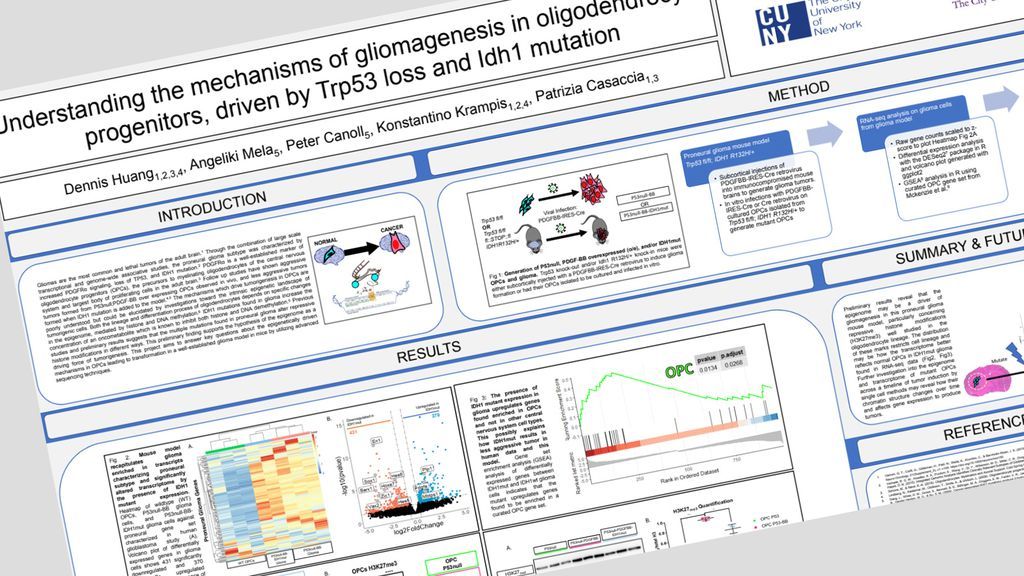
Understanding the Mechanisms of Gliomagenesis in Oligodendrocyte Progenitors, Driven by Trp53 Loss and Idh1 Mutation
| Name | Dennis Huang |
| Institution | The Graduate Center, City University of New York |
| Research Field | Basic Research |
| Role at Institution | Graduate Student |
| Presenter(s) | Dennis Huang |
